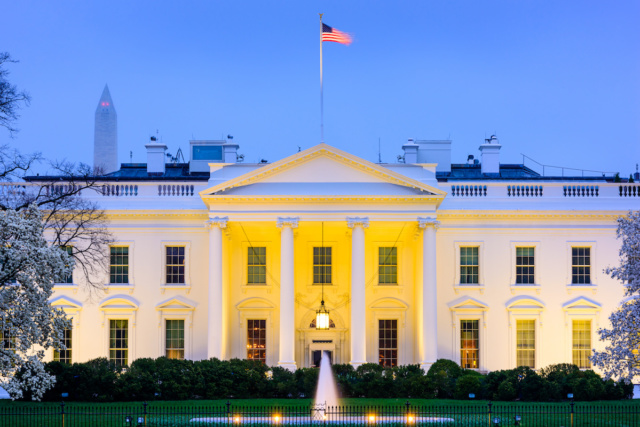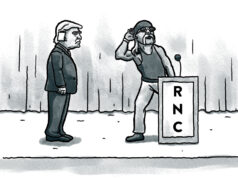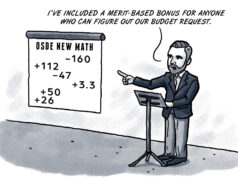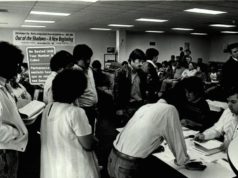Come election day 2016, Oklahoma Democrats will be casting votes for Donald Trump.
I’m not talking about the first Tuesday after the first Monday in November, although some misguided Democrats may well be Trump voters on that election day. I mean the Monday after the second Wednesday in December, when the Electoral College convenes to cast its ballots.
There are 538 voters, or electors, in the Electoral College, one for each U.S. senator and one for each U.S. representative, plus three for the District of Columbia. Each state elects as many electors as the size of its congressional delegation.
When Americans vote for their candidate for President, they are actually choosing electors pledged to that candidate. For all except Maine and Nebraska, the electors are elected on a winner-take-all basis: The candidate with the most votes gets all the electoral votes. (In Maine and Nebraska, there are separate contests by congressional district as well as the two statewide contests for the remaining electors.)
Oklahoma, which has seven electoral votes in 2016, uses the winner-take-all system.
Let’s do some arithmetic
As of the 2010 U.S. Census (the most recent), the Oklahoma population was about 3,762,000, and congressional districts are to contain about 712,000 people, which is why Oklahoma currently has five congressional districts (3,762,000 ÷ 712,000 = 5.3). Had 712,000 Oklahomans suddenly moved elsewhere prior to the 2010 census, Oklahoma would have one fewer congressperson, and one fewer electoral vote in turn.
At present, Oklahoma has about 2 million registered voters, of whom about 44 percent are Democrats, the remainder being Republicans or independents. So, there are about 880,000 registered Democrats in Oklahoma. That is, Oklahoma has more than a congressional district’s worth of registered Democratic voters. (One could argue that Democrats account for more than two districts’ worth of Oklahomans: The current population of Oklahoma is about 3,900,000; 44 percent of that is 1,716,000, which divided by 712,000 is 2.4.)
So, if all the Democrats left Oklahoma, Oklahoma would have at least one, and possibly two, fewer electoral votes. Another way of putting it is that one (or possibly two) electoral votes from Oklahoma represent Democrats.
It’s a pretty safe bet that come Nov. 8, the majority of voting Oklahomans will vote for Donald Trump, although perhaps not by the 67 percent to 33 percent that Mitt Romney defeated Barack Obama in Oklahoma in 2012. But even if it is by 51 percent to 49 percent, when the Electoral College votes on Dec. 19, all seven of our electoral votes will be cast for Donald Trump, including the one (or two) representing Democrats.
Electoral College system obviously unfair
I’m sure I’m not the only Oklahoma Democrat who resents this situation. Of course, we could all leave, as I hinted above. But unless we all relocated to a safely Democratic state (like California, emulating the Joad family, to pick an archetypical, apocryphal example) the additional electoral vote this congressional district’s worth of ex-Oklahomans represents is not guaranteed to end up on the Democratic side of the Electoral College tally.
There is a critique of the Electoral College system (avoided here) that it can select a president who receives a minority of the popular vote, as happened in the 2000 election. Such examples ignore the possibility that, under the Electoral College system, some voters, like for instance some Oklahoma Democrats, will skip the Presidential ballot because they know their votes will not affect the results.
I think most Americans, of all political parties, agree that the U.S. Constitution is not only a marvel of 18th-century political theory, it is an amazing living document that, with minor tweaks, has managed to enable us to govern ourselves fairly into the 21st century. Whether the Electoral College was an integral part of that ancient theory or a bone tossed to states’ rights activists to get their acquiescence to ratification is a question for historians.
But that it is unfair to populations like Oklahoma Democrats — on whose unwilling behalf Trump’s Electoral College votes will be cast in December — is obvious.
Would it be possible to have a national election for president in which every vote was counted equally?






















